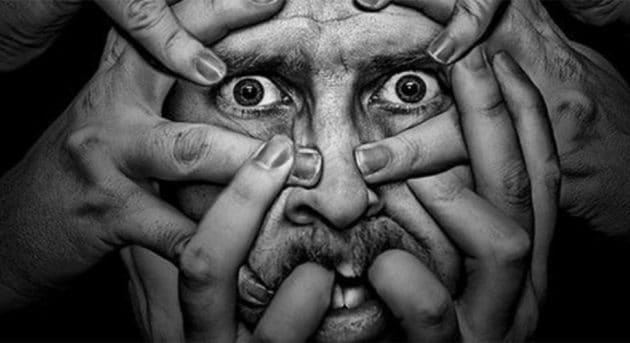A refuge in the arts
In July English historian Simon Schama spoke of “Art as a refuge from the terrible crisis we are all living through.” Two months later, as the second wave of COVID-19 is upon in an interview with the Radio Times, he said:
“When we are all feeling imprisoned, art lets you travel into the world of imagination and change the subject in your head. It muffles the drone politics and fearfulness. It’s consolatory and liberating.”
Depression doubles in 2020
As published in the Medical Journal of Australia, the number of adults reporting symptoms of depression has doubled. Before the pandemic, one in ten people reported symptoms of depression; now it’s one in five. People with severe mental health problems are also growing in number.
A report commissioned by YouGov found that many Australians are struggling with isolation due to lockdown. There is a large increase in people drinking alone, and 57% reported feeling a rise in stress levels. It is already being predicted that some people will not be able to bounce back after lockdown and that the health system does not have the resources to deal with a wave of depression of this level.
The major psychological impact of lockdown and social distancing measures so far is elevated rates of stress or anxiety. The European arm of the WHO expects that as new measures are introduced levels of loneliness, depression, harmful alcohol and drug use, self-harm or suicidal behaviour will also rise.
In America research carried out by the KFF (Kaiser Family Foundation) has shown that the stress brought on by COVID-19 has affected many people’s mental health and created new barriers for people already suffering from mental illness and substance use disorders. 53% of American adults report that their mental health has been negatively impacted due to the stress and worry brought on by COVID. This statistic has risen considerably since March when it was 32%. Many reports that they are having difficulty sleeping and eating.
Poor mental health due to burnout among front-line workers and increased anxiety or mental illness among those with poor physical health is also a growing concern. The young might seem to be the most immune to the actual virus, but the knock-on effect of lockdown on the state of their mental health might have immensely harmful consequences in the long term.
The second wave is only going to compound the problem. Isolation of lockdown is problem enough. But the stress of an economic depression adds to the problem. As countries around the world face a new surge in infections, and many are bringing back lockdown strategies similar to those earlier in the year, economists are predicting that the economy will get worse before there is a chance of it getting better. Albert Edwards, the strategist at the investment bank division of Société Générale, who became famous for foreseeing the 2008 global financial crisis, apparently predicted that “It will certainly feel like a depression.”
Some front-line workers volunteered to work in COVID-19 wards; some were seconded, others received orders. Nearly all were overpowered by the enormity of the task at hand. The prediction of a quick vaccine result has evaporated into the wind, and some are speaking about perhaps years of social distancing.
Staying positive
As the second wave of the pandemic hits us, the question many are asking, is how to stay or get positive with such sombre news? To reiterate what Simon Schama said; “Art as a refuge from the terrible crisis we are all living through.”
Organisations such as the WHO and national governments suggest ways of dealing with a world that can currently evoke depressive feelings. One of them is to not look at too much depressing news but to look for the positive.
Such initiatives are also growing in the performing arts world in response to the pandemic. The Arts Wellbeing Collective of Melbourne initiated in 2016 to promote positive mental health and wellbeing in the performing arts. They have just started a series of Mental Health Matinées which are free of charge and promote positive mental health and well being in the performing arts.
But performers are not their only target audience. They are starting something called SOUND MIND for which they have assembled Australian stage and screen stars. They will present a mini-series of music exploring mental health and the performing arts. SOUND MIND takes a close look at the countless benefits drawn from engaging with the performing arts. “It is aimed to remind us that in the face of being inundated with obstacles in 2020, music and performance carry infinite power in helping us forge our way forward to improved mental health and wellbeing.”
We need all forms of art to elevate us out of our situation when we need it. The performing arts can entertain us; it can help us face issues that are difficult to look at; it can keep us inspired. Great entertainment can console us, connect us, uplift us into the realms of the imagination, and help us handle the full extent of what is going on in the world around us. It offers us a pause, a get-away, and in short, a refuge.



